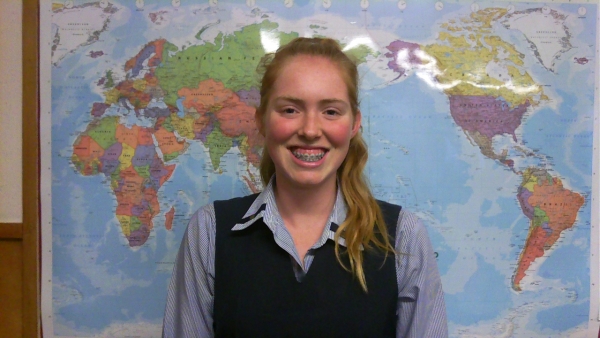Stan Stanfield.
Stan Stanfield is my Great-Grandfather. He fought in several of the battles in World War One. Sidney George Stanfield (Stan) was born in Tinui, a small town near Masterton in 1900. He worked as a farmhand before he sailed off to war at age 15 in 1916. He fought in France and Belgium. When he came home from war he was still 2 years under the age limit of how old you had to be to go to war. Stan was just a just a young boy who lived on a farm in New Zealand who was keen to go to war. He gave in a fake age so that he could go. To young boys war was seen as an adventure. When those young boys came back New Zealand after the war as young men they had a completely different perspective on the war. I never met Stan but on the internet I found some old interviews that he had answered about the war.
About the misery of the war.
“I felt that the war was never going to end. It was going to go on forever. I felt that I would never see the end of the war, that it was not possible. I felt it was not possible that I would survive the war … I can remember feeling at times that I’d be quite happy to engage in any sort of slavery at all if I could be taken away from this, what, misery. Misery.”
Wounded men at Passchendaele
“There was one place at Passchendaele … where we heard a man crying at night out in front and went out and we couldn’t find him and we heard him crying part of the next day. Calling, you know, calling, sort of crying, not screaming or anything, crying out. We just knew there was a wounded man lying down under something you see. We never found that man. That's the only thing that's stuck in my memory. The others, I’ve seen them lay gasping and panting and scratching up the dirt with their fingernails on their face and all crawling around semi-delirious and all sorts of things.”
How men died
“And poor Jim was laying there cuddled up in a heap as men die. Don’t forget we was all young, we didn’t die easy. You don’t die at once, you’re not shot and killed stone dead. You don’t die at once. We were all fit and highly trained and of course we didn’t die easy, you see. You were slow to die and you’d find them huddled up in a heap like kids gone to sleep, you know, cuddled up dead.”
On being a stretcher-bearer at Passchendaele 12–14 October 1917
“It rained and rained and bloody rained, and rained and rained, see. Just like here in the autumn time, when it comes to rain and it was cold. And we were picking them up from a gathering point as a regimental aid post. Well there were hundreds of men laying out, around. You couldn’t get them inside, it was an old German concrete emplacement and you couldn't get them all inside, but the doctors were working inside. And they were just laying around where they’d been dumped by the stretcher-bearers from off the field and at one period I believe there were 600 stretcher cases laying round the place in the wet and cold, just dying there where they were dumped off. They weren’t even laying on stretchers, just lying on the ground with an oil sheet tied over them if anyone thought to do that, or if one of their mates could do it. Just lying there, because the stretchers were used for picking up other men, you see, there couldn’t be a stretcher for every stretcher case. We just carried till you couldn’t carry more. You just went until you couldn’t walk really, you just went until you couldn’t walk.”
